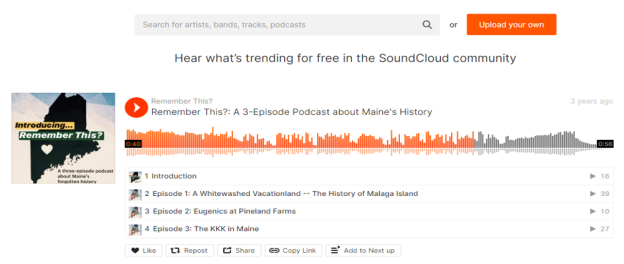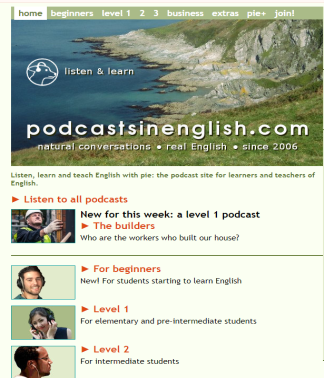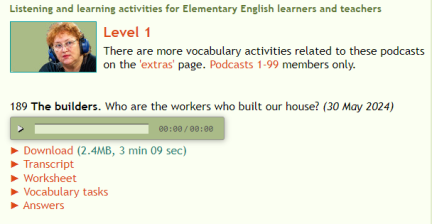This article considers such method of — teaching as podcasting. Classification of podcasts is proposed. It is shown that using podcasts improves students’ listening and comprehension skills. Peculiarities of usage of podcast system are considered. Podcasts develop listening skills in a natural and effective way, and platforms such as Apple Podcasts, SoundCloud and podcastsinenglish.com offer flexibility and convenience.
Keywords : foreign language, linguistic and cultural competence, podcast, podcast technology, soundCloud.
Today, multilingual learning is provided for comprehensive information, modern information internet access, communication to expand the scope of the program. At the same time, for the rapid development of society, it is necessary to form a new image of a new person who is fluent in information technology, who carries out inter-cultural relations.
S. S. Kunanbayeva defines competence as a «mobile system of qualification indicators» that are reflected in the professional qualification model of a specialist. It distinguishes competence as a category that manifests itself in the competencies of a specialist after completing a certain stage of training. [1].Teachers are forced to adapt to new conditions, respond to new challenges and use Internet resources as one of the main tools in teaching a foreign language, directing their activities towards the introduction of innovative educational technologies that can be effectively used for independent work of students in the field of foreign language education and distance learning. One of these innovative technologies is podcasting, which in turn helps to develop linguistic and cultural competence.
Innovative technologies in the field of education are not only technical tools, but also a new type of education and a new way of learning. At the current stage of development of the system of education in foreign language, a lot is said about the Internet and its other technical means, for example: e-mail, blogs, video conferencing, teleconference, TV conferencing, newscast, wikis, etc.
Our main goal is to develop linguistic and cultural competence by using podcast technology of the website on the basis of internet resources.
According to P. V. Sysoev and M. N. Evstigneev, «podcast» is a form of social activity that allows listening, viewing, creating and distributing audio-video programs through the world network. Unlike TV and radio, the document creates the conditions for a person to listen to audio files and video programs, not only through the live broadcast, but also at a convenient time. The most important thing is to download the required files to your computer. Language learners will be able to listen to and watch it and create their own on any topic. The duration of the post will last from a few minutes to a few hours. On the internet, you can also find original language-master(e.g., news from the TV) and training for educational purposes [2, p. 160].
«Podcast» is a form of social activity that allows listening, viewing, creating and distributing audio-visual programs through a global network. The duration of the post will last from a few minutes to a few hours. On the internet, you can also find original language master (e.g. BBC news) and training for educational purposes.
Students can become fluent in foreign languages by mastering the competencies of the language. Modern internet technologies as podcast will allow to develop their linguistic and cultural competence.
The transition from a type of information to a sound or video-to-audio format has caused audio and video resources to gain popularity through the Internet.
Since 2004, it has been called a «pod». The term «podcasting» is two words: if the iPod is the name of the famous mp3 plérère, broadcasting means «broad attraction» when translated from English.
According to G. Stenley's proposal, the videos will be divided into three categories: audio-subcast, video-pod, and screencast. [3].
Screening is a new concept that makes it easier for people to learn online. The main point of the screencast is that the computer screen with audio-commentary, which explains computer programs, is written by special programs.
Audio-podcast can be called audio feeds (podcast channels) that can be downloaded over the Internet or recorded by a computer or voice recorder. In the video form, the recorded feed shall be called a vodkasty, and the creation, distribution and application technology of the vodcast and the vodcast will be called a webcast. Based on the specifics of how you package your pods into series and publish them in your feeds, you can consider them as audio blogs or system diaries with a recording made in audio form [3, p. 165].
Social activities of podcasts have their own characteristics. They are as following:
— The possibility for users to place their own podcasts in the podcast service section of the Internet;
— In the service section, each podcast author has his own page. This allows you to organize a network analysis of the content of the podcast;
— The ability to organize online analysis of podcast content on the user's personal page through a microblog or web forum in the service department;
— The podcast author creates and edits a personal page;
— During the organization of the network analysis, posting of messages is done chronologically (as in a block or forum);
— Accessibility. Any user can listen and watch the podcast published on the server.
The authentic podcast services have emerged as an alternative way of spreading information to language learners, who would like to develop their language skills In particular, podcasts are effective in teaching foreign languages. The language materials can help students to understand a foreign language by hearing. As a listener, teachers and students will be able to access authentic educational materials that meets all requirements and interests.
Today, students can listen to the podcasts in the following way:
1) They can listen online without downloading files;
2) They can download and listen to personal computer, mobile phone, MP3-player, iPod;
3) They can create your own podcast that can be distributed to users over the Internet.pod.
On the website, language learners will find a short description of the age, residence, education, level of language proficiency. and the task, which will allow learners can record audio files accessible to all users with the help of a special program on the site, which will boost the enthusiasm and interest of the students. Podcast can develop several types of speech skills in the study of a foreign language: aslistening and writing skills.
For example, the platform SoundCloud is one of the popular source listening to podcasts.

Fig. 1. Screenshot of the platform SoundCloud
Let's look at the ideas for assignments that can be offered to students after listening to a podcast about the state of Maine. These assignments will help improve students' language skills and deepen their understanding of the topic
- Summary Writing: We can invite students to write a short summary of the podcast, highlighting key points and interesting facts about Maine. This assignment will help students develop information compression skills and learn how to isolate the main ideas from the material they have listened to.
- Listening Comprehension Questions: We can make a list of questions related to the content of the podcast. The questions can range from simple ones such as “What is the capital of Maine?”, to more complex ones, for example, “How does the economic situation in the state affect its residents?The answers to these questions will help students better understand the content and critically evaluate what they have heard.
- Discussion and Debate: We can organize a discussion or debate on the topic covered in the podcast. For example, students can discuss what makes Maine unique or what difficulties may arise while living in this state. This assignment develops argumentation skills and helps students express their opinions in English.
- Role-playing game: We can divide the students into groups and ask them to act out a scene where one of them is a tourist and the other is a local resident or a guide. In the process, they should discuss interesting places and cultural features of Maine. This task contributes to the development of conversational practice and the use of functional vocabulary and expressions.
In the course of the work with the documentary, the students learn to listen to the objectives, to identify the topic and the basic idea, to divide the subject into logical parts. Since the pod provides a new opportunity to receive authentic material through hearing. The use of the material in foreign language classes will be interesting and interesting, because it contains topical materials in the field of education, and it can be supplemented by nationalistic drawings and videos, and the speakers enrich their dictionary funds by taking notes on topical topics. develops speech skills equally. Many of these are interesting subjects. The documentary will allow language learners to develop their creative skills, learn to speak freely in foreign languages, social services and websites will allow to expand the knowledge of foreign culture, to gain unlimited access to any authentic information.
According to internet sources, the technology of the web will strengthen interdisciplinary relations, which in turn will contribute to the development of social and cultural tolerance of students in understanding other linguistic issues. Internet technologies allow teachers of foreign languages to effectively use international network sources and promptly update language material. For a long time, students did not have the opportunity to use authentic materials in their work, such as the works of authors from the countries where the target language is spoken, but thanks to internet technology, they can now select materials related to the chosen topic. The advent of video and audio content (e.g., interesting speeches by political and civil servants, linguists on various topics) has also become possible. Implementing monologues and dialogues based on discussions presented by the teacher or one of the students further supports this. Social and cultural tolerance of students will be strengthened by the development of intercultural relations, contributing to an understanding of other linguistic perspectives. Linguistic analysis of oral and written opinions, letters using different phraseologies, idioms, phrases, and neologisms reflecting linguistic activity’s peculiarities in the context of the population is now feasible. Students familiarize themselves with linguistic knowledge that reflects language etiquette, characteristics of different peoples, and customs of the country where the language is studied. Additionally, they can expand their vocabulary with active and passive foreign language elements, indicating the level of societal consciousness and social and political structures. The wide range of information and excellent web services available based on internet sources allows foreign language learners to maintain authenticity, communicate with other learners, and listen to them, creating a real language environment. This is crucial for the development of linguocultural competence, as it integrates linguistic skills with cultural understanding, fostering deeper intercultural communication and appreciation.
It is impossible to master interdisciplinary competencies without the experience of communication, Therefore, the use of Internet resources in the course of foreign language lessons is invaluable: the virtual environment of the Internet temporarily allows the space to move out of the circle, and users can get into an authentic relationship and discuss topical topics for both sides with real, real language learners (intermediaries). it is necessary to use it competently in the teaching process in order to become the optimal nugget.
Analyzing the scientific literature regarding the technology of the website, you can identify the following didactic features of the website:
— Most of the authentic websites are created by language learners of the country where they study the language, In this regard, it is necessary to determine not only the reality of the social and cultural life of the country that reads the language, but also the synthesis of the verb and non-verbatim codes of foreign communication, master ingenuity of information directly related to the identity of the future owner, as well as the function of the language as a means of communication in the real world.
— You can develop a variety of phrases, such as reading, pronunciation, subscription syllabi, listening and understanding, using the language of learning a foreign language. In addition, the articles provide knowledge about the culture of the country, forming the social and cultural competence of the country that reads the language. Mastering the language, culture, traditions of the country in which he reads the language allows the future professional to have many opportunities: for example, to immerse himself in society, to fully understand the consciousness of other peoples, to understand the world's interests.
In addition, using the in order to organize the process of teaching a foreign language, it is important to remember the following important activities: creating a motivational basis for teaching in a very important place increases the level of teaching. For example, in teaching French, you can apply to the website «Apprendre le francais abec» https://www.podcastsinenglish.com/ , where you can apply to the level of students a fair yurts, dialogues, grammar exercises.

Fig. 2

Fig. 3
Let's take a closer look at the classification of podcasts. One of the most popular is the classification of G. Stanley [7]. According to this classification, there are the following types of podcasts for teaching foreign languages:
1) authentic podcasts. This type of podcast is intended for students who have extensive experience listening to audio files, especially those who have a high level of proficiency in a foreign language;
2) created by the teacher (teacher podcasts) to achieve certain goals in the process of teaching a foreign language;
3) student podcasts, most often with the help of a teacher;
4) Educator podcasts cover issues related to the methodology of teaching a foreign language. This type of podcast is suitable for educators themselves.
There is a different classification of podcasts for teaching a foreign language according to the following parameters:
1. By technical platform: standalone podcast (created with offline software; integrated podcast (created as part of the www.podomatic.com website).
2. By type of multimedia: audio podcast; Video podcast.
3. By the number of authors: individual podcast (created by one author); collective podcast (created by two or more authors).
4. By authors: teaching podcast; A podcast created by students.
5. Along Genre: training podcast;entertaining podcast; General Policy Podcast
6. By learning objectives: formation of skills; development of skills [1].
The proposed classification does not claim to be universal, but, in our opinion, it fully reflects the rich diversity of this technology and, accordingly, the wide possibilities of its application in the process of teaching a foreign language.
For easy listening to podcasts, many software products have been created that monitor the updates of podcast feeds and their automatic download. As a rule, podcasts have a specific theme and periodicity. Most of them are difficult to attribute to any one type, because you can talk about anything in a podcast. The main genres of podcasts are distinguished, including audiologists (analogous to an online diary), music, technology, comedy podcasts, audiobooks, educational podcasts, interviews, news, politics, radio plays and radio shows, sports, games [5].
Since a podcast is a type of audio material, its use in teaching a foreign language is aimed at developing students' listening skills and developing lexical skills. Authentic materials motivate learners because they are more interesting and more stimulating to learn than artificial or adapted materials. Working on authentic material brings students closer to the real conditions of language use, introduces them to a variety of linguistic means and prepares them for independent authentic use of these means in speech.
In conclusion, with the effective use of podcasts, methods of learning a foreign language change according to the personal capabilities of students. In addition, the podcast gives freedom to the development of students’ creativity. The use of podcasts in teaching a foreign language makes teaching mobile in time and space, not limited to the classroom.
The development of linguistic and cultural competence is not limited only to the development of its linguistic structure. In addition, it is important to take into account its other units — socio-cultural sub-competence and linguocultural competence. The importance of socio-cultural sub-competence lies in a person’s ability to understand other cultures, compare them with their own culture, discuss reflections and engage in critical thinking while communicating with partners, develop tolerance, i.e. respect for the values of other cultures, and increase interest in expanding their acquired knowledge. Linguocultural competence, on the other hand, integrates linguistic skills with cultural understanding, allowing individuals to use the language appropriately in various cultural contexts and fostering deeper intercultural communication.
References:
- Kunanbayeva S. S., — The modernization of foreign language education: the linguocultural-communicative approach — Almaty — 2010 — P.25
- Sysoev P. V., Evstigneev M. N. — Methodology for providing foreign language with the use of new information and communication Internet technologies. — Moskva — 2010. — P.182.
- Gerasimenko T. L., Grubin I. V., Gulaya T. M., Zhizhkovo O. N. Linguistic aspect of learning foreign languages with the use of modern Internet technologies: collective monograph. — M.: Masi, 2013. — P.119.
- O’Byran A., Hegelneimer V. “Integrating CALL into the classroom: The role of podcasting in an ESL Listening Strategies Course // ReCALL — 2007 #19(2)-162–180p.
- Sysoev P. V. Podkast in the study of foreign languages / Languages and Culture, 2014. № 2(26). P.189–201.
- Abdrakhmanova K.Kh.–Лингвомәдени құзіреттілік-полимәдениетті тұлға қалыптастырудың негізі — Вестник КазНПУ им.Абая — Almaty — 2016 — p. 22–24.
- Stanley, G. Podcasting for ELT / Graham Stanley. Text: electronic // Teachingenglish.org.URL:http://www.teachingenglish.org.uk/think/articles/podcasting- elt







